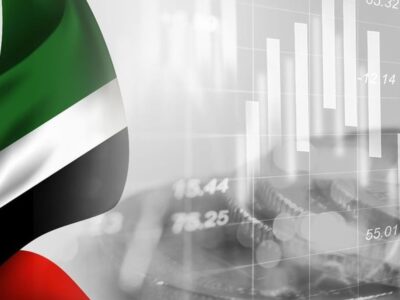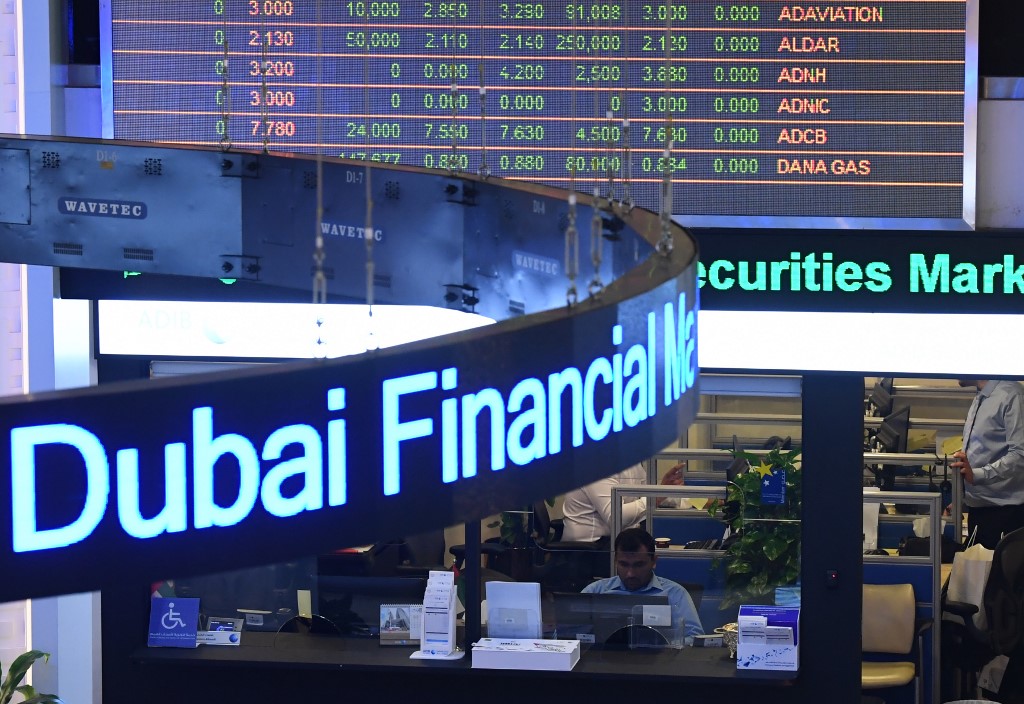Dubai’s benchmark stock index fell the most in the Middle East on Tuesday, a day after the UAE unveiled plans for a corporate tax from the middle of next year.
The Dubai Financial Market General index dropped as much as 1.3 percent, making it the worst performer among emerging markets, with Emirates NBD Bank and Emaar Properties leading losses.
Abu Dhabi’s benchmark stock index also declined before turning positive.
The UAE, of which Dubai is part, plans to tax corporate earnings from June next year. The news is “clearly negative” for equities, said Hasnain Malik, head of research at Tellimer.
Shareholders in publicly listed companies are among those likely to feel the impact of the tax because of the transfer of value to the government, he wrote in a note.
While the plan will broaden the government’s income base, Moody’s Investors Service warned the new levy would negatively affect the credit profiles of companies operating in the Middle East business hub.
Citigroup Inc analysts said Dubai Islamic Bank, Abu Dhabi Commercial Bank and Abu Dhabi National Oil Company for Distribution were most likely to be affected by the new taxes.

The Gulf oil exporter announced Monday it would impose a 9 percent federal tax on corporate earnings from June 2023 as it seeks to shed its reputation as a tax haven and bring itself in line with changing global standards.
The step is the most significant since 2018, when the country introduced value-added tax, Moody’s said in a statement.
“The introduction of the 9 percent federal corporate tax is broadly credit negative for domestic UAE corporates because it will reduce their operating cash flows,” according to Moody’s. “However, the overall impact on the credit profile of large corporates will be muted because they have several offsetting levers, such as increasing product or service prices, optimising their cost structure and reducing shareholder dividends.”
Many international firms are based in the UAE’s free zones, where they operate under special rules and will remain exempt from the new tax.
Industry experts told Arabian Business that the UAE will continue to attract foreign direct investment (FDI) and global businesses despite introducing the tax on business profits, effective after June 1 2023.
Largely perceived as an “expected and logical” move following the UAE’s economic diversification efforts, the corporate tax will apply to all businesses and commercial activities alike, except for the extraction of natural resources which will remain subject to emirate level corporate taxation.
Some see the corporate tax as a natural consequence of the UAE’s efforts to attract foreign investments and international talent.
With a standard statutory tax rate of 9 percent, and a 0 percent tax rate for taxable profits up to AED375,000 to support small businesses and start-ups, the UAE corporate tax regime will be among the most competitive in the world.






